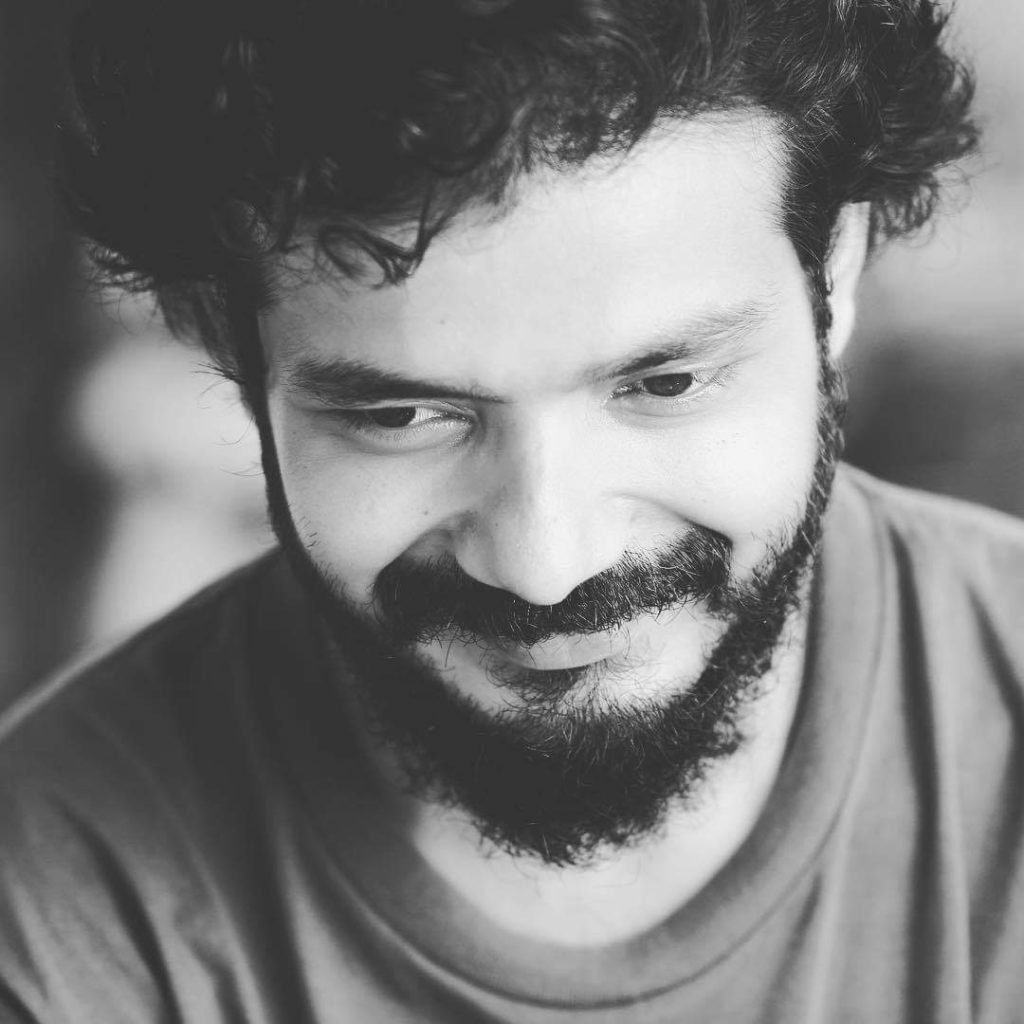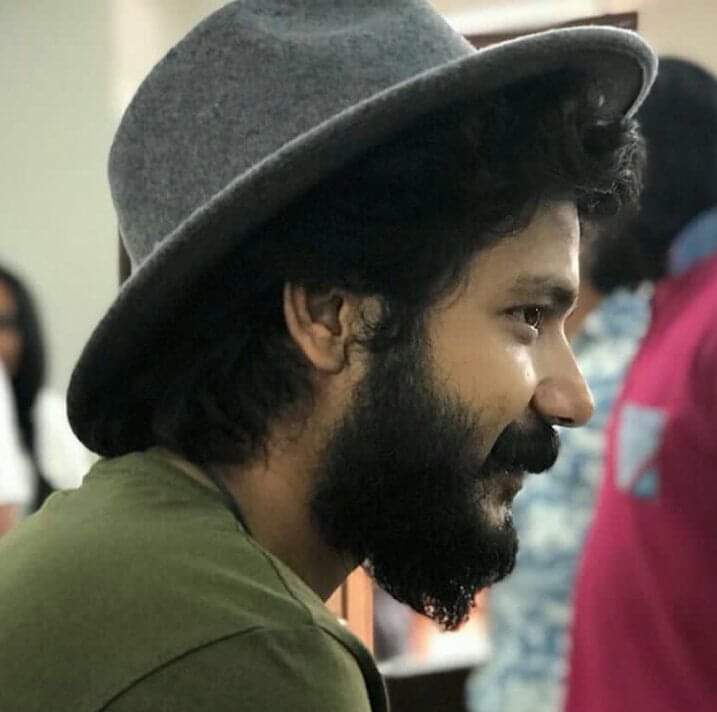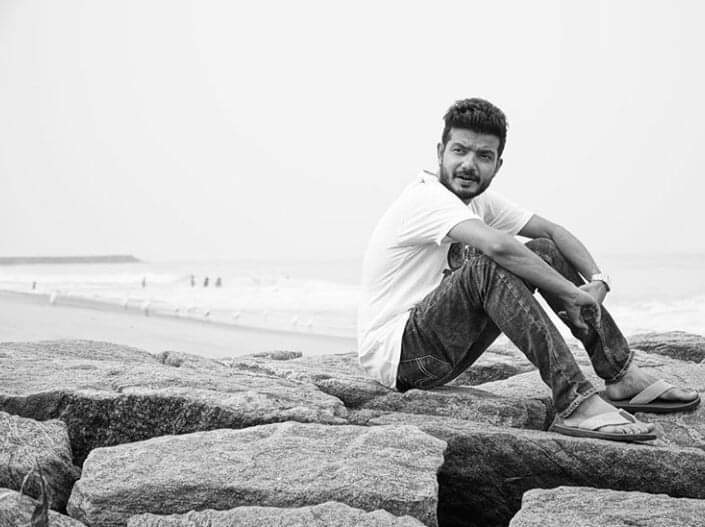“We have done an interview before,” I offer, as an icebreaker.
“Oh! For a website, is it? I am sorry, but I don’t remember.”
Right! That’s okay, I am used to it.
Read More
- Movie Review : ‘English Vinglish’
- Did Thalapathy Vijay shine in Lokesh Kanagaraj’s LEO?
- Mall of Muscat solidifies its position as the country’s leading fun and entertainment destination by launching Fun VR
- Three-time Oscar nominee Piper Laurie dies at 91
- TAS Weekly: The fascinating rise of Omani singer Jihad Al Raisi
But he persists. “Which movie was it for? You said two years ago, right?”
“I don’t remember.”
“Yes. It’s not important. You said your name is Neelima.”
Wikipedia says Virus is his 25th film. This piece of trivia is met with interest and disbelief.
“Really?” he asks. He repeats, “Really?”
The year 2019 has begun on a terrific note for the 31-year-old actor, who was a revelation as a doctor in Aashiq Abu’s Virus, the mute brother in Kumbalangi Nights and in the Allu Ramendran cameo.

When you look back, do you think you have sort of evolved as an actor?
When you do something for a long time, you will always try to be better at it, no? I think that happens to everybody. It’s quite natural, I think.
So many interesting films—Virus, Kumbalangi Nights and then there was Allu Ramendran. “Allu” he corrects me, “You are not from this part, right?”
Of course, I am.
“Where are you from?” “Bangalore.” Brief silence.
“Ahem! Well. You are making it difficult for me”.
“Ha ha …did I put you in a spot? Go ahead.”
“Before you ask me anything let me ask you. Have you seen any of my work yet?”
“Have I seen any of your work?”
“Any of my movies, have you seen it in theatres?”
“Of course, most of them.”
“What you are saying?! Damn nice, man. You are one of the first people to have done it.”
“Aren’t you being a little too hard on yourself?”
“No man, I am being completely real.”
Right. I try to steer the conversation back to Bonny. “Was it difficult playing a mute?”
“It was easy no? I just had to react to a situation, nothing to worry about the lines. It had its own thing. I was having fun with it.”

At one point I felt he had a mass hero tone.
But Bhasi shakes his head. “I just felt like that big brother who was grounded. I didn’t feel like a mass hero. That’s a bad place to be in. Bonny is quite sorted. Towards the end it’s more of everybody coming together but Bonny was already hyped up from the beginning. We shot the scenes mostly in order. Towards the climax, it was like the brothers coming together, after the women came into the family. But in the other family it got messed up. That was the core idea, in my understanding, of the film.”
Do you read reviews of your films?
“Like a noise, I like to hear about it. I don’t get to it. I don’t read, that’s another terrible thing to do. Obviously, I like to hear what people think about my work, no doubt. I do read good reviews about good movies, but I don’t decide to see a movie based on these reviews.”
He points to a feature that went viral on social media which said his doctor character was a failure. There was another one, from a doctor, who said he could relate to my role. “In the long run it didn’t matter because people were saying great things about it. I keep it to a minimum. It’s not my primary concern.” (laughs)
Aakasha Ganga 2, where he plays the hero’s friend, and Happy Sardar are his upcoming projects— “After doing two intense films, these two were a great stress buster. You know what I mean? ” Right.
According to him, actors needn’t always go for a soul-searching trip in every film. “You are basically an instrument for the director. I have said some insane stuff in Virus, and I had doctors with me all the time. I used to remember Nostradamus for a particularly mind-boggling medical term.”
Dr Abid in Virus, he agrees, isn’t like anything he has ever done before. “It’s a different costume. That’s what it takes. You need to cast people in different costumes. The whole idea is to be ready when they say action.”
He would never “dare to describe himself as an actor.” When I hint that he shouldn’t risk giving TV interviews, considering his bluntness, Bhasi chuckles, “My terrible work and my interviews—things that I hate in my life.”
Aashiq Abu is a mentor, who makes him “super comfortable.” He doesn’t even ask about the story, he says, as you know they are people with whom you will be taken care of. In Da Thadiya, often the best shot will be there in the final cut.
“When you have to do creative stuff, you need to be in an organic, harmonious environment and get things done. Aashiq is a lot of fun.” Virus is his fourth film with the director after 22 Female Kottayam, Da Thadiya and Rani Padmini.
“No one else will cast me man, I don’t know,” he laughs.
In Jacobinte Swargarajyam, Bhasi played Nivin Paul’s younger brother, a sort of sorted Jughead Jones who loves music. He talks about how Vineeth Sreenivasan would narrate the entire script to him and he would ask for breaks in between, as it was too overwhelming for him. “He is a sweetheart.”
Multi-starrers aren’t really much of a fuss, he says. “You are making a movie man, not competing for youth festivals. If you have those issues in your head, you shouldn’t be in a place like that. In Virus, we were all doing what we were given. We would all sit together in a caravan and eat. Damn cool.”
For KL 10 Pathu, Bhasi was already in when Muhsin Parari said he would be a Jinn on the top of a mosque. “He said the jinn will say kudu kudu kukkudu and I was totally sold.”
The tag of “Kochi dude” is something he used to hate initially but now he misses it. “It’s good to look back and think there were conversations about you.”
I wonder if he had a favourite scene in Kumbalangi Nights?
No, man. I suggest that bar scene, perhaps? “I was just so sleepy and Syamettan asked me to stare straight like a gangster. Even my opening shot was like that. It was shot at 2:30 am.”
I feel like some characters are written keeping him in mind, I tell him. “Thanks, man.”
“Bonny was, after a point, written for me. It was difficult though…a great role. I loved every bit of it. So, I can’t pick any. I was the youngest guy first and then the story evolved.”
Since the beginning, he admits, he was serious about acting. Right from the time he auditioned for Shyamaprasad’s Elektra. He didn’t get the role but that was the first script he read. Blessy’s Pranayam came much later. He would ask Anupam Kher if he should learn acting. But was advised to stick to on-the-set training.
So, what’s happening with his music band? He used to have a band but not anymore. But yes, one of these days he should probably concentrate more on it.
Akasha Vani, techno to rock and metal. That’s what he and his younger brother grew up listening to. “I had band stuff in college. I really wanted to travel the world around and then Sreenath Bhasi, the actor happened. I play the guitar. That’s it.”
He used to be a huge Mohanlal fan. “Full power, hardcore fan…especially the great 90s. Kireedam and that last scene, Uff man!”
Parava’s bully was exciting— “It’s boring to keep doing the same old thing.”

Bhasi brings the conversation firmly to Anwar Rasheed’s Trance. “Man, it’s a solid film with so many actors. Though I am very excited, I am not telling you anything about the story or my role.”
Has his approach towards acting changed now? “All that’s hogwash. It’s the same as carpentry or sculpting. You do something for a long period of time, you get good at it. It’s a naturally evolved process. Apart from physical transformation, unless you get to the skin of a character, you can’t do it.”
He admits that it is often “distressing to be around method actors who are still in their characters even after they are out of the frame”.
Old and new directors are all pretty good with their craft. “Filmmaking isn’t bull shitting. Look at how Sibi Malayil uses his actors or how actors are killing it inside a Priyadarshan frame.”
I wonder what role he would have fit in the 90s. “I would have been Jayan, man,” Bhasi shrugs.







